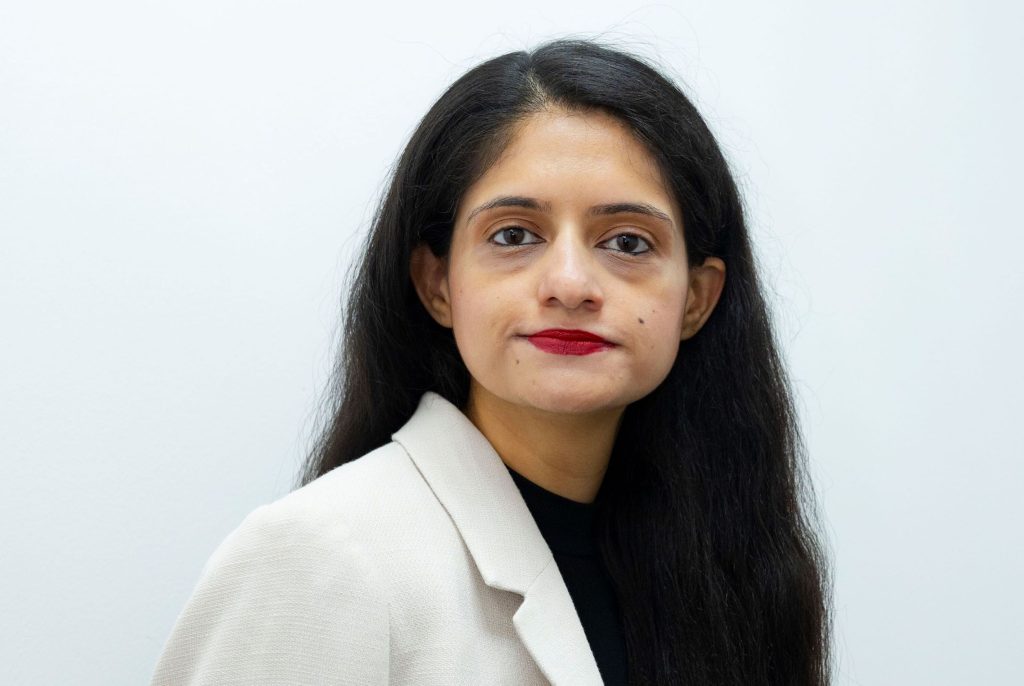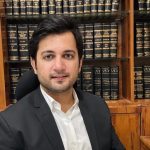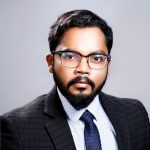This interview has been published by Anshi Mudgal and The SuperLawyer Team
With such a diverse academic background, what initially inspired you to pursue law, and how did your early education in India, your LL.M. at The George Washington University Law School, and your PhD at the University of Technology Sydney shape your focus on technology, intellectual property, and governance?
My journey into law began with a fascination for the Indian Constitution, a passion I nurtured from around the age of 17. I initially enrolled in a Bachelor of Economics at Delhi University, largely following my parents’ preference, but quickly realized that statistics and quantitative subjects were not my strength. They were very supportive when I decided to leave and pursue law instead, a field that truly aligned with my interests in governance, rights, and regulatory frameworks.
During my legal studies in India, I completed the mandatory year of pupillage and internship, which gave me a clear sense early on that conventional legal practice was not the path for me. After graduating from law school and completing my internship, I chose to work for a media technology company in a legal-business role rather than a core legal role. While I did not learn a great deal about practicing law in that role, I gained invaluable insights into how media companies generate revenues through media rights. This first job laid the foundation for my current role at the Asia-Pacific Broadcasting Union (ABU), where I continue to work at the intersection of law, technology, and media rights.
After my LL.M. at The George Washington University Law School, I stayed on for a year as a legal researcher at the Estelle and Melvin Gelman Library, working on a grant-funded project. It was during this period that I developed a deep interest in rigorous legal research and began considering pursuing a PhD in the future.
Several years later, after moving to Malaysia to work for ABU, the PhD opportunity finally presented itself. In 2019, I received a scholarship from the University of Technology Sydney to write my doctoral thesis under two highly respected IP scholars. I chose to focus on the intersection of copyright, performers’ rights, and dance, an unconventional topic that few IP scholars are willing to supervise. My co-supervisor (a leading Australian IP scholar), who happened to be a trained ballet dancer, was supportive of my choice. This allowed me to combine my academic interests with my personal passion as a trained contemporary Indian dancer and a student of Anand Shankar.
These experiences (from my early fascination with constitutional law, to my LL.M. research, to my PhD under distinguished scholars) have shaped my focus on technology, intellectual property, and governance. They reflect a trajectory guided by curiosity, rigorous research, and the desire to leverage law to protect innovation and creativity across diverse domains.
In the early phase of your career in India, what were the most formative experiences that laid the foundation for your practice and motivated you to specialize in intellectual property law?
From an early age, I have always had a global mindset, shaped in part by my father’s encouragement to think beyond borders. Growing up in a family of fourth-generation entrepreneurs, I also knew deep down that one day I would start my own venture. These early influences gave me the confidence to chart a non-conventional path in law, one that could combine rigorous legal expertise with innovation, business, and a global perspective.
In the early phase of my career in India, I was profoundly shaped by what I observed in conventional legal practice. I was concerned by inefficiencies in the justice system, the backlog of cases, and at times, lapses in ethics among practitioners and judges. It’s not that the whole Indian legal system is flawed, but these experiences made it clear that a traditional legal career was not for me. I had always envisioned a professional journey that would take me beyond India, allowing me to work on global challenges and innovations.
My first professional role at RSG Media Systems exposed me to the commercial side of media rights. I gained important insights into how media companies generate revenue, yet I realized I wanted a deeper understanding of law itself, particularly in areas intersecting with technology, creativity, and business. Intellectual property law naturally emerged as the perfect bridge between these interests.
Admission to The George Washington University Law School for my LL.M. became a decisive step toward my vision of becoming a global legal professional. That experience, combined with my subsequent PhD and international roles, reinforced my trajectory toward innovation-driven law, entrepreneurial ventures, and intellectual property strategy. Looking back, these formative experiences (my global outlook, early exposure to media and business, and rigorous legal training) laid the foundation for my focus on technology, IP, and governance on a global scale.
What inspired your transition from practicing in India to building an international practice, and how did you navigate the challenges of adapting to different legal and professional ecosystems?
My transition from practicing in India to building an international practice was a natural evolution, shaped by the global environment in which I was raised. Although I grew up in India, most of my father’s clients were foreigners. Our home constantly hosted visitors from across the world. This exposure gave me a deep comfort with cross-cultural interactions and a global perspective from an early age. I did not even have an official “Indian” name until I was 15. My relatives and friends often laughed at my nickname, which didn’t sound very “Indian.” Even in Southeast Asia, people sometimes ask me, “Where are you from?” despite my distinctly Indian surname. From food preferences to clothing choices, many of my everyday habits are shaped by this international environment, reinforcing my adaptability and ease in multicultural settings. Even my astrologer once remarked that I would thrive in international environments, a prediction that, in hindsight, aligns closely with the trajectory of my career. These experiences have been invaluable, enabling me to navigate diverse legal, business, and cultural landscapes with confidence and nuance. These experiences have been invaluable throughout my career, enabling me to navigate diverse legal, business, and cultural landscapes with confidence and nuance.
While this global exposure came to me naturally, I actively built additional skills to thrive in international environments. I learned basic Mandarin, took courses in cross-cultural negotiations, and continually sought opportunities to expand my knowledge. Adapting to different legal and professional ecosystems required not only understanding local laws and professional norms but also honing skills that allow me to connect effectively across cultures. It was challenging at first, and even now, navigating international scenarios is not always easy.
These experiences, combined with my grounding in international law and intellectual property, enabled me to develop a practice that is both globally relevant and locally effective. My upbringing instilled confidence and adaptability, and my commitment to continuous learning has been critical in navigating challenges and building an international career.
You’ve worked extensively on media rights, sports agreements, and international lobbying. What have been the most complex challenges in balancing broadcaster rights with the rapid evolution of digital and OTT platforms?
I have worked extensively on media rights, sports agreements, and international lobbying, which has given me deep exposure to the complexities of balancing broadcaster rights with the rapid evolution of digital and OTT platforms. The ongoing challenges reflect the nuances involved so much so that the broadcasters’ treaty has not been adopted even after more than 20 years. Even within my organization, we constantly debate fundamental questions such as “what constitutes broadcasting” and “who qualifies as a broadcaster” in a rapidly changing digital environment.
For me personally, one of the biggest challenges arises when distributing rights. OTT platforms are inherently non-territorial, which creates complexities when determining the exclusivity of sports rights in specific territories. Resolving these issues requires careful negotiation, strategic foresight, and an in-depth understanding of both the technology and the legal frameworks governing media rights.
The rise of OTT platforms has added additional layers of complexity. Traditional licensing frameworks often struggle to accommodate streaming models, on-demand services, and cross-border content distribution. For instance, the recent bill in India aimed at regulating OTT platforms highlights how governments are still grappling with these shifts, trying to balance consumer access, content regulation, and the protection of established media rights.
Navigating these challenges requires a combination of legal expertise, strategic negotiation skills, and a clear understanding of how technological disruption transforms the media landscape. My work in this domain has sharpened my ability to reconcile competing interests, draft adaptable agreements, and anticipate regulatory trends, ensuring that broadcasters’ rights remain protected even as the definition of “broadcasting” continues to evolve.
As a legal consultant advising start-ups and international organizations, how do you approach contracts and IP licensing across jurisdictions such as Asia-Pacific, Europe, and the US? What recurring challenges do start-ups face when entering these markets, and how can they prepare for them early on?
As an IP expert and co-founder of a clean-tech startup, I have seen first-hand how critical a robust IP strategy is to a start-up’s success. Advising start-ups and international organizations across Asia-Pacific, Europe, and the US, I approach contracts and IP licensing with a global mindset. Every jurisdiction brings its own legal frameworks, enforcement mechanisms, and cultural nuances, and agreements must be carefully crafted to balance protection, commercialization, and investor confidence.
Start-ups often face recurring challenges when entering new markets. IP regimes are fragmented, copyright, patent, and trademark protections differ, and licensing agreements can become complex when crossing borders. The biggest hurdles arise when trying to align a start-up’s ambitions with local regulatory realities while ensuring that innovations remain secure.
Preparation is essential. I advise start-ups to embed IP strategy into their business plan from the outset i.e. conducting thorough market and IP due diligence, clearly defining the scope, territory, exclusivity, and enforcement rights in contracts, and engaging experienced legal counsel early. This approach not only reduces potential disputes but also builds trust with investors and partners, enabling the start-up to scale efficiently while safeguarding its core innovations.
For me, the interplay between law, technology, and business is endlessly fascinating. Helping start-ups navigate these complexities while protecting their innovations has been one of the most rewarding aspects of my career, and it underscores why IP strategy is never an afterthought. It is the backbone of sustainable growth in a global marketplace.
As Co-Founder of Mabill Technologies, how are you leveraging AI and IoT to build sustainable HVAC solutions, and what role does intellectual property strategy play in protecting and scaling this innovation?
As Co-Founder of Mabill Technologies, we are focused on leveraging AI to build predictive maintenance solutions for HVAC systems. We have plans to develop a proprietary AI algorithm in collaboration with a university, with Mabill retaining full intellectual property rights while giving proper attribution to our academic partner. From Day One, I have approached this venture with a strong IP strategy, ensuring that our innovations are protected and positioned for scalable growth. Our IoT roadmap, which will enable real-time monitoring and optimization of HVAC performance, is planned for rollout in the second phase of development. By combining AI, IoT, and a robust IP strategy, Mabill aims to deliver sustainable, efficient, and market-leading HVAC solutions.
Having advised both start-ups and WIPO on IP law and sustainable innovation, how has your research and writing influenced your approach to balancing commercialization, investor confidence, and long-term climate impact?
Having advised both start on IP law and working with WIPO for a short consulting project, my research and writing have shaped a practical and principled approach to balancing commercialization, investor confidence, and long-term climate impact. I have come to recognize that investor confidence is ultimately built on trust. Trust that the technology is robust, the team is capable, and the IP is well-protected. My work in IP strategy ensures that innovations are defensible and scalable, which in turn is likely to assure investors. At the same time, my focus on sustainable innovation means that we do not sacrifice long-term climate impact for short-term gains. This dual lens of trust and sustainability guides how I structure ventures, communicate with stakeholders, and make strategic decisions that align profitability with purpose.
What advice would you give to students aspiring to a career in intellectual property law? What practical steps and resources should they focus on during law school to prepare themselves for this field?
It’s great to aspire. However, I would advise students not to get overly fixated on choosing a specialization too early. Intellectual property law is a fascinating field, but it is very niche. What matters more in law school is building strong foundational skills that will serve students across any area of law.
One of the most critical skills is learning how to read i.e. not just reading casually, but developing the ability to process complex legal texts quickly and efficiently. I truly learned this during my PhD. It has been transformative for my career. Many students underestimate the importance of speed reading and speed writing. Nonetheless, in today’s world, these skills are what will set students apart. AI can retrieve statutes and perform basic drafting, but the ability to read deeply, synthesize quickly, and write clearly remains irreplaceable.
In practical terms, law students should focus on cultivating analytical thinking, precision in writing, and the ability to quickly absorb large volumes of information. Internships, research projects, and exposure to different areas of law will also help develop versatility, which is especially important in niche fields like IP. Some of the best IP lawyers I know are creators, inventors, or entrepreneurs themselves. This combination of legal skill and practical, hands-on understanding of innovation gives them an edge. A strong foundation, combined with curiosity and disciplined study habits, will equip students to succeed whether they ultimately specialize in IP or elsewhere.
How do you see the future of intellectual property and media law evolving with emerging technologies, and what is your vision for the evolution of your own practice in the coming years?
The future of intellectual property and media law is poised for a sea change, driven largely by emerging technologies such as AI. Traditionally, IP laws have been human-centric, focusing on human creators and inventors. AI disrupts this framework, raising fundamental questions: Who qualifies as an author? Can a machine or AI system hold authorship? Jurisdictions across the world are actively debating how to address these challenges, and IP laws will likely need to evolve to accommodate non-human-generated works and AI-assisted inventions.
In media law, licensing for OTT platforms remains one of the biggest challenges, particularly given their cross-border, non-territorial nature and the rapid pace of digital disruption. These shifts require not only technical legal expertise but also a strategic understanding of business models, technology, and regulatory frameworks. For me personally, determining the exclusivity of sports rights in specific territories for OTT platforms is a particularly complex challenge.
I am registered to take the California Bar Exam, which reflects my legal training and commitment to professional rigor. However, my primary role today is as a founder and legal strategist rather than a conventional practitioner. My goal is to build Mabill into a leading venture while simultaneously establishing my thought leadership brand. I plan to revisit the decision to sit for the exam depending on Mabill’s growth trajectory, ensuring that my focus remains on driving innovation, scaling the business, and shaping the intersection of law, technology, and sustainable solutions.
I see my role evolving from a technical-legal expert to a legal strategist and systems thinker. I aim to blend my legal background with high-level strategic input for start-ups in regulated sectors such as clean-tech. As a thought leader and clean-tech founder, I am no longer a conventional lawyer. Nonetheless, law continues to inform my work, enabling me to provide insights that protect innovation, anticipate regulatory trends, and support sustainable growth in a technology-driven world.
You have authored books on the EU AI Act and IP monetization in the AI era, published peer-reviewed articles on piracy, TRIPS, and broadcaster rights, and contributed policy insights at global forums such as WIPO. How do you see this scholarship and thought leadership complementing your role as both a legal strategist and a tech founder and what broader impact do you wish to create in shaping the future of IP and technology law?
My work as a scholar and thought leader directly complements my role as both a legal strategist and tech founder. Authoring books on the EU AI Act and IP monetization in the AI era, publishing peer-reviewed articles on piracy, TRIPS, and broadcaster rights, and contributing policy insights at global forums such as WIPO has given me a nuanced understanding of the intersection of law, technology, and innovation. These insights allow me to advise start-ups and investors not only on compliance but on strategic IP and legal frameworks that drive value creation and reduce regulatory risk.
Being a tech founder, myself gives me a first-hand perspective on the challenges innovators face i.e. how to scale responsibly, protect core technologies, and navigate complex cross-border regulations. This combination of scholarly rigor and operational experience enables me to provide high-level strategic guidance that is legally sound, commercially viable, and investor-ready.
My broader vision is to shape a legal and regulatory ecosystem where emerging technologies like AI are harnessed responsibly, IP rights incentivize creativity, and sustainable innovations (especially in sectors like clean-tech) can scale globally. By bridging the worlds of law, entrepreneurship, and technology, I aim to help founders, investors, and organizations anticipate market shifts, protect their assets, and unlock long-term growth opportunities.
Get in touch with Dr. Seematani Sharma –





No comment provided.